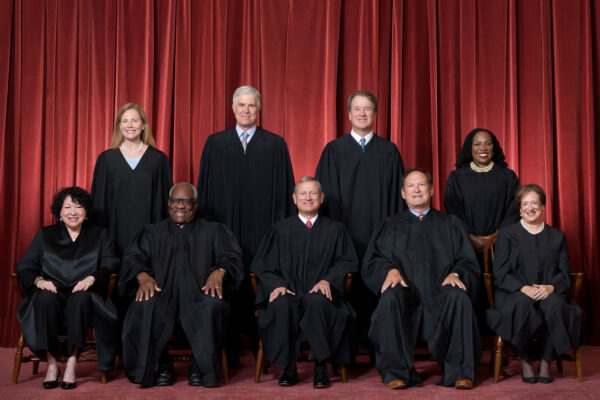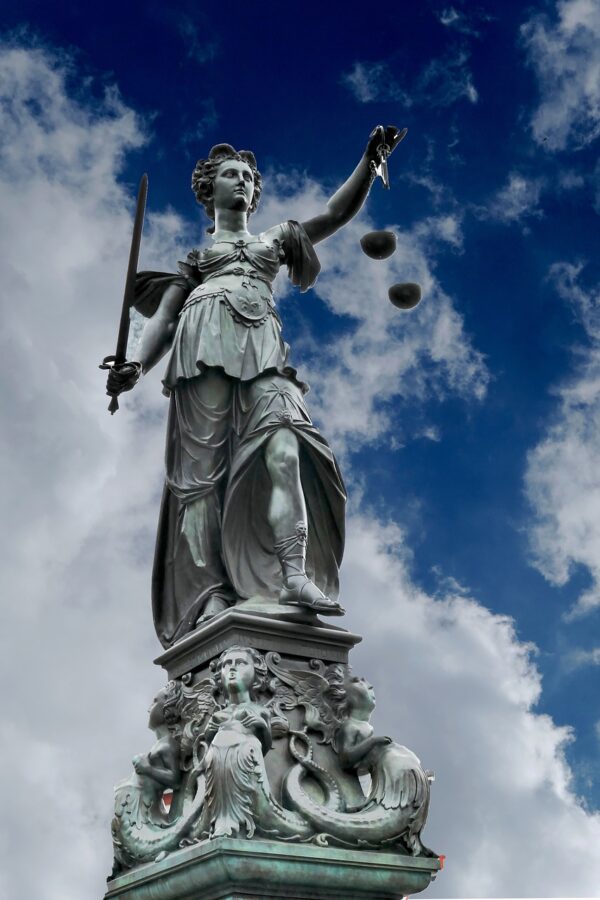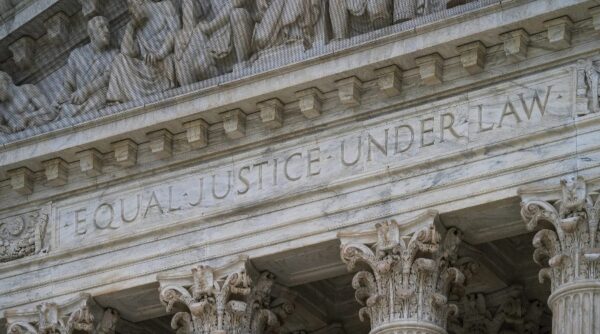
The Supreme Court of the United States (AKA SCOTUS) just had a birthday! Established by the Judiciary Act of 1789, the Court turned 235 on March 4, 2024 (and she doesn’t look a day over 200!). The Court’s motto is “Equal Justice Under the Law,” but for much of its chequered history it may as well have been, “Often Wrong, But Never in Doubt.” We don’t have to go as far back as the 1857 “Dred Scott” decision (which found that the U.S. Constitution did not extend American citizenship to people of black African descent) to find a real head-scratcher. More recent examples include Heller in 2008, which confirmed the Second Amendment gun rights free-for-all; Citizens United in 2010, which granted corporations the same free speech rights as individuals regarding political spending; or the 2022 ruling in Dobbs which eliminated nationwide reproductive health rights (though to be fair, it was also SCOTUS that confirmed those rights, in 1973’s Roe v Wade).

Of late, SCOTUS seems to be performing some block and tackle action for Donald Trump (who appointed three of the current members, a full third of the Court), reinstating him on primary ballots in states which had ruled him ineligible for office due to his participation in the January 6 insurrection; and granting a further two-month stay on Federal criminal trials by agreeing to hear his ridiculous argument for total presidential immunity on any and all acts while in office. It’s (almost) inconceivable that the Court will support this view, but the delay is the whole purpose of Trump’s case, trying to run out the clock and avoid a verdict before voters go to the polls in November.

The timing for the Court’s “birth” was, in many ways, perfect (as always in cosmic terms), but it’s also problematic. With its 14 Pisces Sun conjunct Saturn at 13 Pisces, SCOTUS is “The Authority” in the US, as it should be. Justice and the Law should always have the last word in a democracy, not subject to the political vagaries of the day, nor the timeserving ways of legislators, or the autocratic impulses of presidents.
Well, that’s the ideal, anyway. But with Saturn here, the Court is also markedly conservative over all. Saturnine entities chafe at change, seek to impose “traditional” values, tend toward restricting rights (except where guns are concerned, of course) and quashing innovation. That this is so can be confirmed by a simple examination of the Court’s make up; since the Civil War, only 26 justices have been appointed by Democratic presidents, as opposed to 53 by Republicans, more than twice that amount. In theory, politics isn’t supposed to apply to SCOTUS and its decisions, but it stands to reason that conservative presidents appoint conservative jurists, and progressives appoint progressives. Once they don the black robes, personal philosophy is supposed to take a back seat to the law, but Justices are as human as anyone else, and in practice, their opinions and prejudices prior to their appointments continue to hold sway afterward.

Mercury is also widely conjoined the Sun, from 22 Pisces, and is retrograde. It’s certainly appropriate to have a deliberative body strongly influenced by the planetary energy governing argument and debate, process and decision-making. But Mercury’s retrograde stance suggests a certain degree of backward-looking philosophy, an over-reliance on what has gone before, which supports the Court’s traditionalist bent.

The Sun doesn’t make a lot of aspects to classical planets, implying a certain degree of isolation for the Court, which in turn suggests lack of connectivity or sympathy with where the mood of the country is in any given moment. There is a trine to Jupiter at 19 Cancer – again, no more than what we’d expect, with Jupiter ruling the courts and judiciary generally. This can also be a recipe for judicial overreach. And a sesquiquadrate to Uranus at 1 Leo provides that occasional pop of progressive, free-thinking, forward-looking jurisprudence that can, at times, make the Court unpredictable. Mercury’s trine to Jupiter can also be blamed for the Court’s tendency to go on ad infinitum when writing majority opinions, concurrences and dissents, as this pair yoked together often yields voluminous responses, delighting in choosing four words where one will do.

And that’s about as much as a traditional astrologer could tell you about SCOTUS. But here at AAA, we’re anything but traditional!
Let’s take a look at stationary bodies first. Points at station exert a much greater-than-usual influence on character or events, forming loci in the psyche where energies coalesce, immovable islands in the stream of consciousness, as it were.
In the case of SCOTUS, we see two asteroids at station with continual application to the Court’s history and function. The first of these is asteroid Justitia 269, named for the Roman goddess of justice, and the root of our word. Who can quibble with Justitia embedded in the chart of an institution whose members are known as “Justices?”

At 8 Scorpio, Justitia turned retrograde on March 12, little more than a week after SCOTUS was established, and is trine its Sun/Saturn conjunction. This reaffirms the tendency to put conservatives (Saturn) on the court (Justitia) – for whatever reason, it’s just easier (trine) to appoint them. But a wide square from Justitia to Uranus at 1 Leo assures that some conservative-appointed Justices “surprise” (Uranus) their presidential appointers, providing in practice more progressive rulings (also Uranus) than expected. And speaking of presidents, their power to appoint Justices is seen in Justitia’s opposition to asteroid Whitehouse 4036 (the presidency) at 4 Taurus.

The other point at station is asteroid Washingtonia 886, which at 2 Cancer turned direct on February 20, almost two weeks prior to the Court’s establishment, but remains at its station degree. Washingtonia of course represents the US capital, where the Supreme Court is seated. By implication it also represents the Federal Government, of which the judiciary is a vital component, created by Article III of the US Constitution.
Other asteroids add flavor to the overall “taste” of the SCOTUS to American minds. There’s a comparatively rare exact conjunction of asteroid Nemesis128 and Damocles 5335, at 18 Capricorn. Damocles isn’t actually an asteroid – technically, it’s a Damocloid, the first discovered of the celestial class to which it lent its name (if you’ve noticed, I never call Damocles an asteroid, nor do I term it “Damocloid Damocles,” which is just too weird; I use it without a qualifier). These bodies are small, possibly comet remnants, with highly eccentric orbits that take them from past Saturn to inside Mars. Damocles’ orbital period is just over 40 years, but its eccentricity is such that it spends more than three-quarters of that time in the sign of Aquarius, zipping through the rest of the zodiac in less than ten. In contrast, Nemesis is a Main Belt asteroid, with a typical orbital period of about four and a half years. So depending where in Damocles’ cycle they last came together, their reunion can take up to decade, making exact conjunctions not your run-of-the-mill celestial event.

And the SCOTUS has one. What does it mean? Well, Damocles is noted as the threat of impending disaster, a looming peril that is unseen and unsuspected. Nemesis refers to ruin and destruction, often self-created, and also has affinities with vengeance or retribution. Nemesis/Damocles closely opposes Jupiter at 18 Cancer, so whatever threat the SCOTUS may represent to the nation, it’s a big one!
There’s also a square to asteroid Sisyphus 1866 at 21 Libra, with Neptune at 22 Libra. Sisyphus is named for that Hadean worthy doomed for his crimes to forever roll a rock uphill, only to have it roll down again, thus necessitating endless repetition of the action. And that’s what Sisyphus represents, astrologically – the need to continually repeat oneself, to go back over old ground again and again, never making headway.

Think reproductive rights are guaranteed? Think again! How about voting rights? Not so fast! Is affirmative action rock-solid? Don’t count on it! The Court has a Sisyphean history of taking two steps forward, one step back that seems to have come to a crescendo in recent years, and much of it can be traced to this aspect.
And why do they do that? Why do the Supremes reverse themselves? That’d be Neptune, the original “fuzzy thinker”: confused, contradictory, unrealistic (Neptune is also exactly inconjunct Mercury, reaffirming this clouded logic). Religious zealotry and fanaticism fall under its purview as well, and if you’re looking to put a face on that looming threat of destruction, look no further than the Dominionist Christian philosophies some Justices espouse.

And adding fuel to the fire is TNO Eris 136199, conjoined the pairing from 20 Capricorn. Eris is named for the Greek goddess of discord and strife, and yes, quite a few of SCOTUS decisions do seem to evoke those qualities, whichever end of the political spectrum you populate. But lately, to use a baseball metaphor, the Court seems to be acting less as an umpire, calling balls and strikes, than as a third base coach, counseling its partisan teammates how best to reach home plate.

That the Court may not always have the country’s best interests at heart, or is seen as a negative, limiting influence, is perhaps best described by a conjunction of asteroid America 916 at 3 Gemini with asteroid NOT 2857 at 0 Gemini, a general disqualifier or symbol of a reluctance or refusal to proceed. Vast majorities of Americans deprecate the influence of corporate money in politics, but SCOTUS waves them on; similar percentages want sensible gun laws, but the Court shoots them down; most support some form reproductive freedom, but SCOTUS says there’s no constitutional right to mandate a national policy; more than two-thirds support marriage equality, but that’s no guarantee the Court won’t erode those rights as well.

There’s another celestial body which symbolizes justice – that’s asteroid Themis 24, named for Justitia’s Greek counterpart, which appears in the SCOTUS natal chart at 27 Aquarius. This just happens to be the degree of the US Moon, which represents its people, a stunning testimonial to a country born from its reaction to the injustice of being taxed without representation, with a goal of equal justice for all. Bracketing Themis are the SCOTUS Venus at 22 Aquarius and Mars at 29 Aquarius. Venus is our values, and Mars is our actions, bound here by the guiding principle of equality under the law, and justice meted out fairly without fear or favor.

Sometimes what we say we value, and how we act, appear as irreconcilable differences, but it’s inherently the Court’s job to bring these together, as symbolized by the Venus/Themis/Mars conjunction. So far, SCOTUS seems to have a poor track record in accomplishing this.
Alex Miller is a professional writer and astrologer, whose website AlexAsteroidAstrology.com offers a trove of info on the role of asteroids in personal and mundane astrology. He is the author of The Black Hole Book (available on Amazon.com) and The Urban Wicca, former editor of “The Galactic Calendar,” and past president of The Philadelphia Astrological Society. His pioneering work with Black Holes in astrological interpretation began in 1991, when his progressed Sun unwittingly fell into one. Alex’s books and writings are available on his website. Alex can also be reached for comment or services at .
Leave a Reply